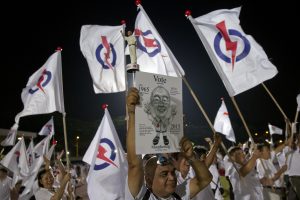Election season is creeping up on Singapore. Although the current term doesn’t run out until April 2021, Singapore’s Prime Minister Lee Hsien Loong is widely expected to call an early general election sometime this year.
When, exactly, the starter gun will fire isn’t known, and with only nine days of campaigning, Singapore’s elections are blink-and-you’ll-miss-it quick. But the overall result of the election isn’t in much doubt. The ruling People’s Action Party (PAP) hasn’t lost an election in over 60 years, and the entire Singapore system — from the dominance over data and information, to the exercise of restrictive legislation, and the electoral process itself — is set up in a way that gives the party the upper hand. On top of that, the party also enjoys genuine support among a broad base of voters, guaranteeing it not just a win, but a supermajority in Parliament, every election cycle.
What’s of more interest to observers is the margin of the PAP’s victory, and the performance of various opposition parties, particularly the Workers’ Party (currently the only opposition party to have a presence in Parliament), the Singapore Democratic Party, and the new Progress Singapore Party, founded by a former PAP veteran. None of these opposition parties are aiming to form government at present — in fact, making such a claim could actually scare away potential voters. Instead, the dream is simply to break the PAP’s two-thirds parliamentary majority, which would restrain the incumbent’s ability to amend the constitution and increase the amount of debate in the House.
Despite its advantageous position, the PAP has its own reasons to be anxious about its performance in the next election. Prime Minister Lee has indicated that, while he’ll still lead the party into this upcoming contest, the PAP’s “fourth generation”— or “4G” — leadership will be steering the ship. According to Lee, he’ll be stepping back some time after the election to make way for the 4G cohort, presumably led by the current deputy prime minister and the PAP’s first assistant secretary-general, Heng Swee Keat.
The PAP will thus want to demonstrate that the next generation enjoys as much popular support as previous ones. But what’s less clear is whether this transition will really be anything new.

































